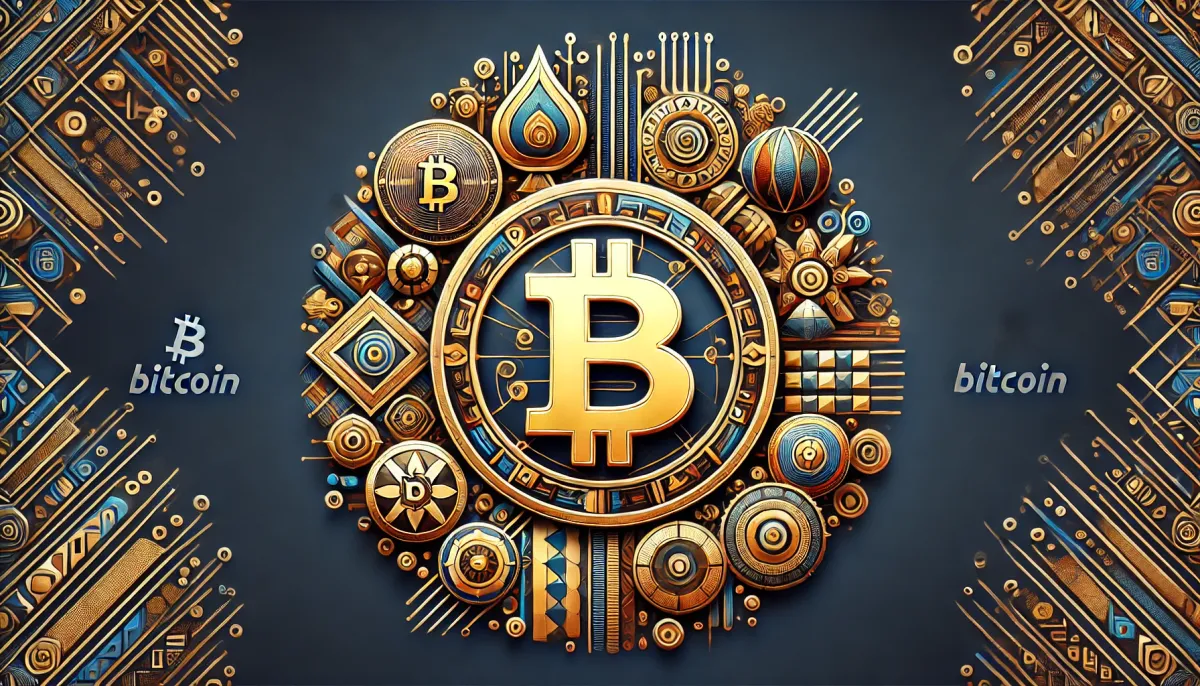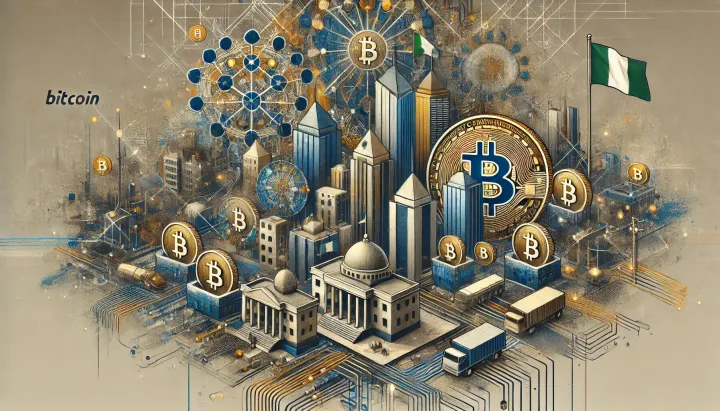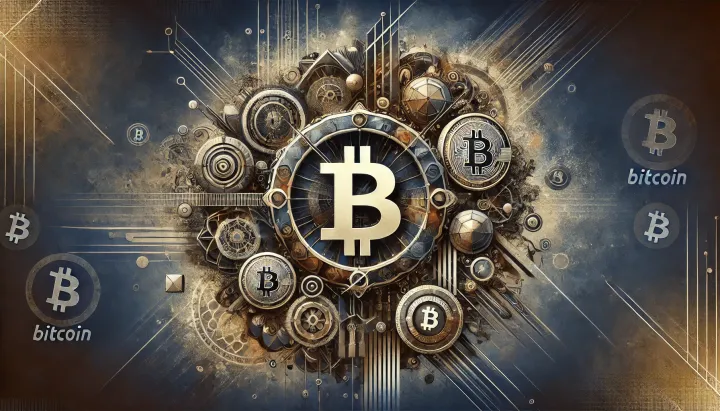Bitcoin’s Role in Powering Africa’s Energy Future
The May 20, 2023 episode of the Blue Collar Bitcoin podcast featured Erik Hersman, a tech entrepreneur based in Africa, exploring how Bitcoin mining can help solve Africa’s energy problem by utilizing excess power from underutilized mini-grids.

- My 'briefing notes' summarize the content of podcast episodes; they do not reflect my own views.
- They contain (1) a summary of podcast content, (2) potential information gaps, and (3) some speculative views on wider implications.
- Pay attention to broadcast dates (I often summarize older episodes)
- Some episodes I summarize may be sponsored: don't trust, verify, if the information you are looking for is to be used for decision-making.
Summary
This May 20, 2023 episode of the Blue Collar Bitcoin podcast explores how Bitcoin mining can be a powerful driver for addressing Africa’s chronic energy shortages. Erik Hersman, co-founder of Gridless, discusses the potential of Bitcoin mining to absorb excess energy from rural mini-grids, providing a financially viable solution for powering underserved communities. The conversation also delves into the socio-economic benefits of expanding energy access, the technological challenges of Bitcoin adoption, and the broader implications of integrating Bitcoin into Africa’s renewable energy projects.
Take-Home Messages
- Bitcoin mining can stabilize energy production in Africa, creating a financial foundation for rural electrification projects.
- Access to reliable energy is transformative, leading to improvements in education, healthcare, and local economies.
- Technologies like Starlink can bridge the digital divide, allowing rural Africans to connect to the global financial and information networks.
- Regulatory and technological challenges must be overcome to ensure broader Bitcoin adoption and the scaling of mining operations in Africa.
- Bitcoin offers a faster return on investment for energy projects, making it a valuable partner for renewable energy development.
Overview
In this May 20, 2023 episode of Blue Collar Bitcoin, Erik Hersman, a tech entrepreneur with extensive experience in Africa, discusses how Bitcoin mining can solve the continent’s energy problems by acting as an anchor for underutilized mini-grids. With 600 million Africans lacking access to reliable electricity, Hersman argues that Bitcoin mining can absorb excess energy, stabilizing the financial viability of mini-grid projects. Gridless, the company Hersman co-founded, partners with independent power producers to ensure that even in remote areas, Bitcoin mining provides a steady demand for electricity.
The conversation also explores the transformative socio-economic impact of providing reliable energy access to underserved regions. Hersman emphasizes that electricity is the foundation for development, enabling communities to access better healthcare, education, and economic opportunities. Bitcoin mining, by stabilizing energy costs, allows local infrastructure to grow, fostering long-term regional development.
Technological solutions like Starlink are highlighted as critical to expanding both energy and internet access. By integrating decentralized connectivity systems, rural communities can access global markets, enabling them to leapfrog traditional development barriers. However, Hersman also acknowledges the difficulties of Bitcoin adoption, pointing out the lack of access to smartphones and reliable internet as major hurdles.
Finally, the podcast addresses the broader implications of Bitcoin for Africa’s future. As renewable energy projects gain traction, Bitcoin mining could serve as a reliable off-taker, making these projects financially sustainable. Hersman argues that Bitcoin offers not just a solution for energy challenges but also a path to greater financial inclusion in regions where banking systems are inaccessible.
Stakeholder Perspectives
- Independent Power Producers: Interested in Bitcoin mining’s potential to provide consistent energy demand, stabilizing revenues and accelerating rural electrification.
- Local Communities: Beneficiaries of lower energy costs and improved access to reliable electricity, with potential socio-economic growth in education, healthcare, and employment.
- Investors: Attracted by the faster return on investment that Bitcoin mining offers in renewable energy projects, compared to traditional energy development.
- Regulators: Need to address environmental concerns and craft policies that facilitate Bitcoin mining partnerships while balancing socio-economic goals.
- Telecommunications Providers: Have an interest in deploying affordable internet solutions like Starlink to enable Bitcoin participation in remote areas, driving both energy and digital connectivity.
Implications
The podcast’s discussion on the integration of Bitcoin mining with Africa’s renewable energy projects suggests transformative impacts on the continent’s energy and economic landscape. By absorbing excess energy from mini-grids, Bitcoin mining stabilizes energy production, making it more financially sustainable for rural areas. This has direct implications for energy producers, investors, and regulators who seek scalable and sustainable energy solutions for underserved communities.
Beyond energy, the socio-economic impact of reliable electricity cannot be overstated. Improved energy access drives education, healthcare, and economic development, creating a ripple effect that benefits entire regions. For investors, the faster return on investment through Bitcoin mining offers a compelling opportunity to back renewable energy projects that not only solve energy problems but also foster broader financial inclusion.
Future Outlook
The expansion of Bitcoin mining in Africa, coupled with renewable energy projects, holds great promise. As the continent continues to grapple with its energy shortages, Bitcoin mining presents a financially sustainable model that can be replicated across diverse regions. The scalability of mini-grids, with Bitcoin mining providing a steady demand, could unlock rural electrification at a faster pace than traditional methods, accelerating socio-economic growth in underserved areas.
However, the future also depends on overcoming significant challenges. Regulatory frameworks must evolve to accommodate the unique combination of Bitcoin mining and energy development. Additionally, technological advancements in connectivity, such as the scaling of Starlink, will be necessary to ensure that rural communities can fully participate in the digital economy. Addressing these challenges will be crucial to unlocking the full potential of Bitcoin as a transformative force for Africa’s energy and financial systems.
Information Gaps
- How can Bitcoin mining contribute to scaling rural electrification in Africa while ensuring affordability for local communities? This question is critical as it focuses on the practicalities of using Bitcoin mining to address energy shortages while keeping energy affordable for local populations, an issue crucial for both economic and social development.
- What technological or regulatory innovations are required to simplify Bitcoin on-ramp and off-ramp access in Africa? Widespread Bitcoin adoption is hindered by technical and regulatory barriers. Understanding how to streamline access is key to integrating more Africans into the digital financial system.
- What are the best practices for integrating Bitcoin mining into Africa's renewable energy projects to ensure both energy reliability and profitability? Renewable energy is growing in Africa, and Bitcoin mining can play a pivotal role in stabilizing these projects. Best practices would help guide energy developers in implementing sustainable solutions.
- How can Bitcoin mining partnerships accelerate the financing process for mini-grid energy projects in Africa? Financing delays are a significant hurdle. Research on how Bitcoin mining partnerships can speed up project financing could unlock faster development of energy infrastructure.
- What additional technologies are needed to ensure the successful deployment of Bitcoin mining in remote, off-grid locations? Technological readiness is crucial for Bitcoin mining in rural areas. Identifying the right technologies could scale the impact of energy and internet access in underserved regions.
Broader Implications
Bitcoin and Energy Infrastructure Development
Bitcoin mining is uniquely positioned to serve as a stabilizer for underdeveloped energy infrastructures, particularly in regions like Africa, where electricity access is limited. The integration of Bitcoin mining into mini-grid projects can ensure that even excess energy is utilized, supporting the financial viability of these grids. This model could revolutionize energy production in developing regions, positioning Bitcoin as a catalyst for infrastructure development and long-term energy solutions.
Financial Inclusion via Decentralized Systems
The podcast highlights Bitcoin's potential to provide financial services to unbanked populations, an issue deeply relevant to rural Africa. By enabling financial inclusion through decentralized systems, Bitcoin could bypass traditional banking barriers, allowing people without bank accounts to participate in the global economy. Expanding on this theme, the broader implication is that Bitcoin could drive socio-economic development by fostering digital economies in regions that currently have little access to financial services.
Renewable Energy Adoption Driven by Bitcoin Mining
The broader adoption of renewable energy is critical for sustainable development, and Bitcoin mining could play a key role in this transition. Bitcoin mining offers a steady demand for energy, encouraging investment in solar, hydro, and other renewable energy projects. As more regions integrate Bitcoin mining into their renewable energy strategies, Bitcoin could serve as a vital tool for reducing reliance on fossil fuels, aligning with global sustainability goals.
Regulatory Evolution for Bitcoin in Emerging Markets
The podcast touched on the regulatory barriers to Bitcoin adoption, which will require significant changes to enable broader participation. As Bitcoin becomes intertwined with energy development, governments will need to craft new policies that balance innovation with regulation. This presents a major opportunity for Bitcoin to become part of the formal economic frameworks in developing regions, shaping the future of digital finance and energy policy.
Bridging the Digital Divide Through Connectivity Solutions
Technological barriers, such as limited internet access, were a central theme in the podcast. Broader implications point to the role that satellite-based solutions like Starlink can play in overcoming these challenges, enabling remote communities to connect to Bitcoin networks and digital services. This could pave the way for more inclusive participation in the Bitcoin economy, especially in regions that have historically been excluded from the digital revolution.



Comments ()